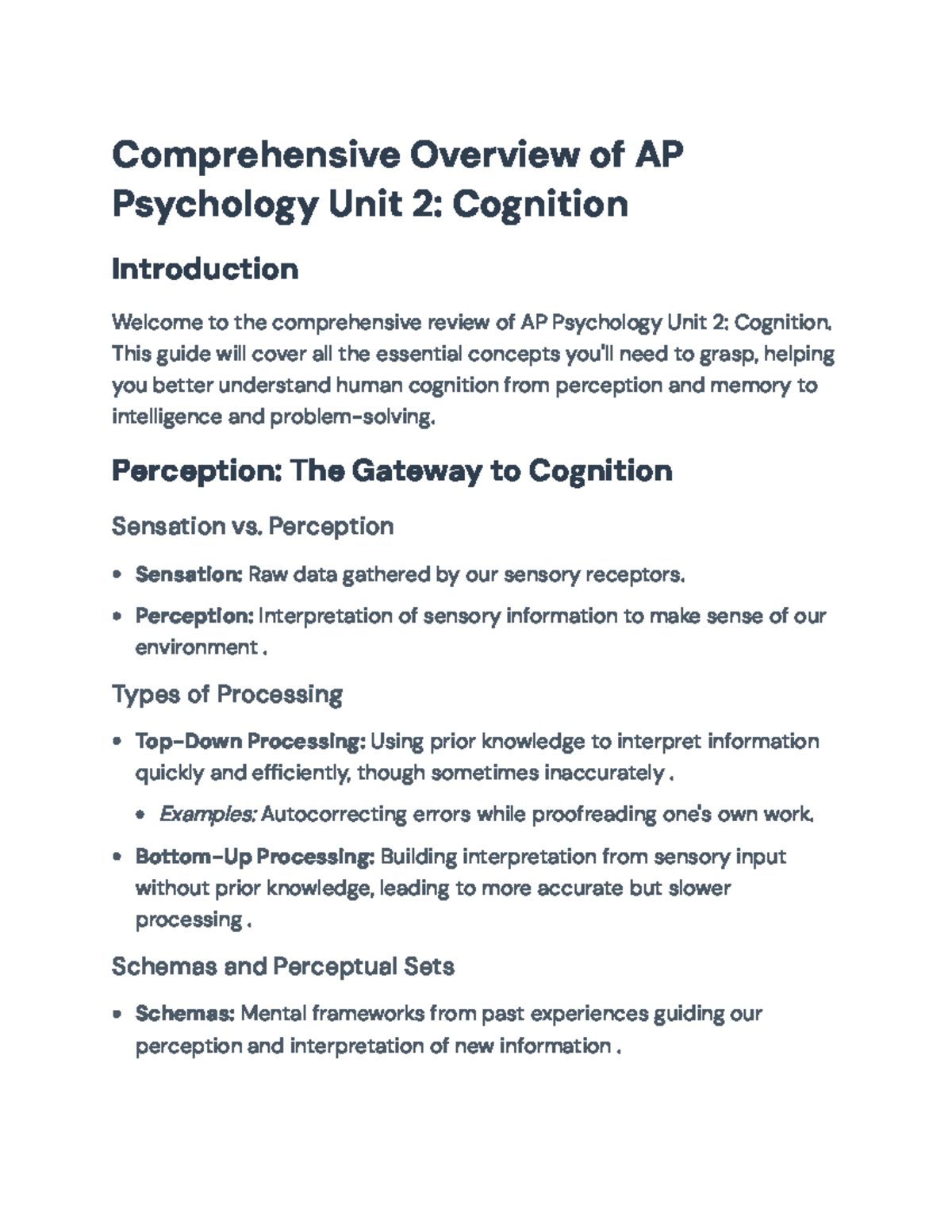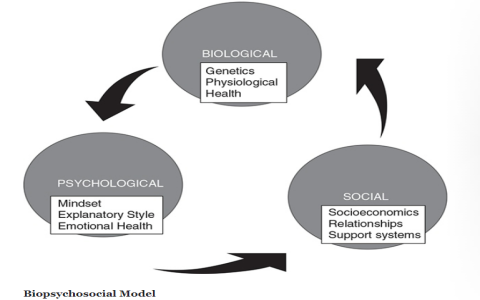Honestly, cramming for AP Psych Unit 2 felt like trying to herd cats sometimes. Cognition? That’s just a fancy word for thinking and remembering stuff. My notes were a total disaster zone.
Starting Totally Lost
I cracked open the textbook chapter on Cognition, stared at the sea of words, and immediately felt overwhelmed. Concepts like “memory models” and “problem-solving strategies” sounded way more complicated than they probably were. I knew I needed to break it down or I’d drown.
Deciding to Build My Own Guide
Rather than just reread passively, I grabbed a giant blank sheet of paper. My plan: build the unit step-by-step, focusing only on the big rocks.
- Step 1: Memory Bank: Started scribbling down everything about how memory works. Made sure to separate the short-term stash (like holding a phone number) from the long-term vault. Forgot everything else at first.
- Step 2: Thinking Stuff: Moved onto how we solve problems. Drew little doodles of people stuck in mental ruts (fixation!) and how to jump out (insight!). Kept it super visual.
- Step 3: Talking Bits: Jotted down how language fits in. Words matter – how we chunk things affects memory. Simple connections only.
- Step 4: Measuring Smarts: Looked at intelligence tests briefly. Wrote notes like “Tests aren’t perfect, just tools” to keep perspective.
The Real Work – Sorting the Mess
My first sketch was chaos. Way too much crammed in. Time to tidy up.

- Trimming the Fat: Crossed out anything that felt like trivia. Do I really need the exact year Ebbinghaus started forgetting curves? Nah. Focused on the why behind forgetting instead.
- Connecting Dots: Linked related ideas. Stuck “heuristics” (mental shortcuts) right next to “biases” on the page. It clicked – shortcuts can lead us astray!
- Finding Real-World Hooks: For each concept, I forced myself to think of a silly personal example. Like when I forgot my keys because I wasn’t paying attention (encoding failure!). Made it stick.
What Finally Clicked
After wrestling with it for hours, things started falling into place.
- Memory Isn’t Magic: It’s a system – encoding, storing, retrieving. Things fall out if encoding sucks or interference happens.
- We Take Thinking Shortcuts: Our brains love using rules of thumb (heuristics), which is usually efficient but can mess us up (biases!).
- Language Shapes Thought… Sometimes: How we talk can influence how we think about things, but it’s not total control.
- Intelligence is Fuzzy: One number doesn’t tell the whole story. Different tests, different views.
In the end, making my own messy, personal guide was the only way through. Forced me to engage instead of just skimming. Now Unit 2 feels less like abstract nonsense and more like understanding my own glitchy, shortcut-loving brain. It was a grind, but at least I didn’t forget the whole thing right after!

